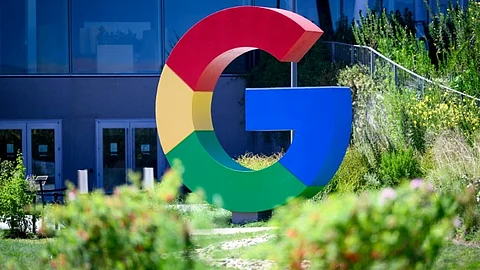
- NEWS
- the EDIT
- COMMENTARY
- BUSINESS
- LIFE
- SHOW
- ACTION
- GLOBAL GOALS
- SNAPS
- DYARYO TIRADA
- MORE

Google has announced a voluntary buyout program targeting U.S.-based employees within its Platforms and Devices unit, which includes over 25,000 staff working on products like Android, Chrome, Pixel, Fitbit, and Nest. According to a report by Jack Kelly of Forbes, this initiative reflects Google’s ongoing shift toward AI-driven priorities and efforts to cut costs amid legal and market pressures.
Eligible employees have until 20 February 2025, to opt into the buyout, with acceptance notifications expected by 25 March 2025. The offer specifically excludes AI and Search teams, signaling Google's intent to redirect resources toward emerging technologies.
For employees considering the buyout, the severance package provides a financial cushion, potentially covering salary continuation, stock options vesting, and extended health benefits. This could be an opportunity for career shifts, particularly in high-demand areas like AI, cybersecurity, and cloud computing.
However, exiting Google voluntarily also comes with risks. The tech job market remains competitive, and while AI-related roles are expanding, traditional software and hardware positions have seen slower growth. Employees who leave may face longer job searches or lower-profile opportunities outside Google’s ecosystem.
Google’s restructuring aligns with broader industry trends, where AI integration is driving automation and efficiency but also workforce reductions. The buyout reflects a strategic pivot as the company prioritizes AI infrastructure spending for 2025.
This trend is not unique to Google. Over 150,000 tech workers were laid off in 2024, following 200,000 job cuts in 2023. By early 2025, around 6,003 employees across 30 tech companies had already been dismissed, reflecting a continuing shift in the industry’s labor dynamics.
Google’s workforce changes also come amid ongoing antitrust investigations. The U.S. Department of Justice is scrutinizing Google's market dominance in areas like Chrome and Android, raising concerns about potential corporate restructuring or divestitures.
By offering voluntary exits, Google may be mitigating legal risks while testing employee sentiment ahead of possible regulatory actions. The buyout could serve as a preemptive measure to streamline its workforce before facing forced changes due to government intervention.
Google’s decision also comes as the stock market reacts to economic uncertainty, with investor concerns heightened by President Trump’s recent tariff announcements on Canadian, Chinese, and Mexican goods. The S&P 500 dropped 1.5%, reflecting broader anxieties about global trade policies and corporate restructuring.
While Google's AI investments position it for long-term growth, the tech industry remains volatile. Employees taking the buyout will need to navigate a changing job market, balancing financial security, career prospects, and industry shifts in the wake of automation and regulatory pressures.
